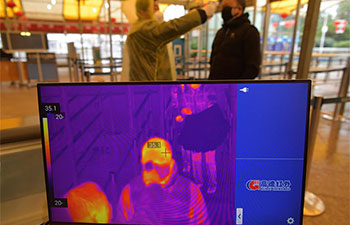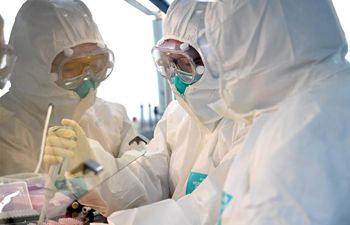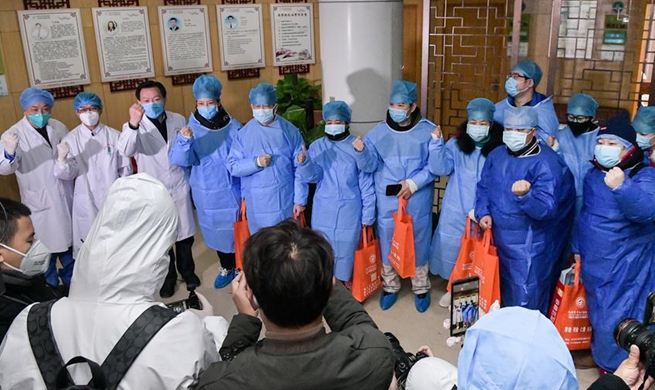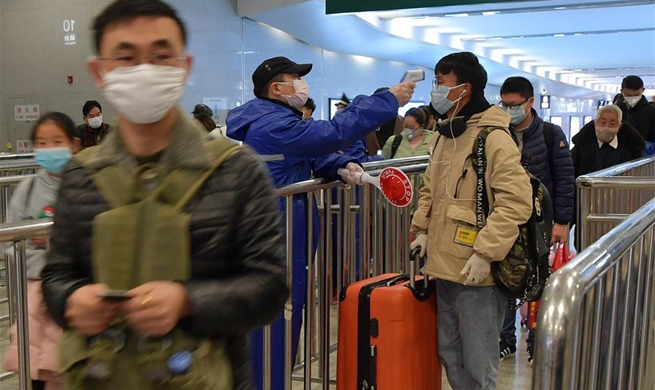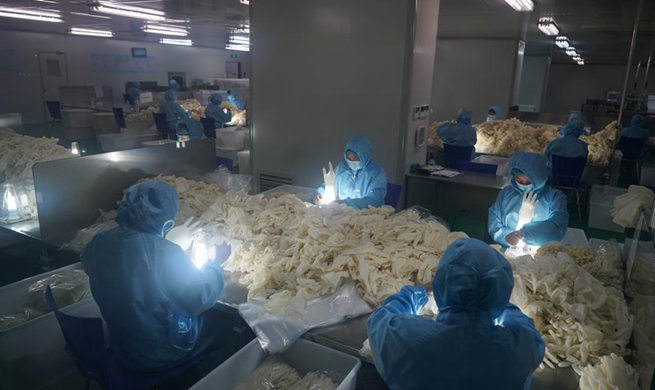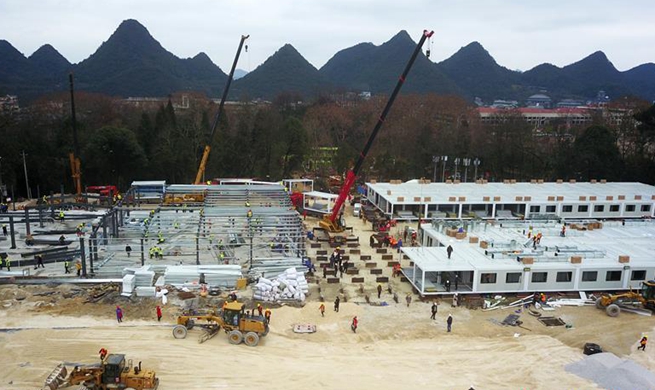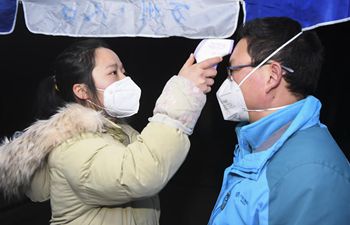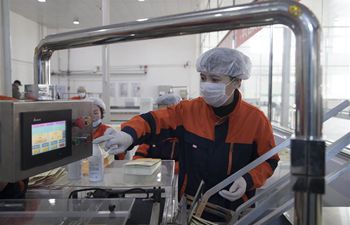BEIJING, Feb. 7 (Xinhua) -- More AI robots have been put on the front line of China's fight against the novel coronavirus (2019-nCoV) epidemic in order to reduce cross-infection risks and improve efficiency.
The provincial people's hospital of Guangdong in south China has employed two robots to deliver materials in the quarantined areas, according to Yu Xueqing, head of the hospital.
By using unmanned driving technology, the robots can independently identify and read maps, plan paths, and complete point-to-point distribution, said Yu.
The two special employees were mainly responsible for delivering medicine, meals, clothing and medical waste with high efficiency. In the delivery process, there is no need for personnel, thus reducing the frequency of medical personnel entering the quarantined areas, said Chen Ren, director of the hospital's infection department.
Intelligent disinfection robots have also joined the fight.
Disinfection robots developed by TMiRob, a medical robot developing company in Shanghai, are being used in Wuhan, epicenter of the epidemic in central China's Hubei Province, to clean and disinfect floors in the quarantined areas.
They are equipped with disinfection management software and can automatically calculate the disinfection time based on the size of the area.
"Robots can help people do many dangerous jobs. Many customers urgently need us to provide disinfection solutions," said Zhang Kejun, general manager of AI firm Lingzhi Co. The AI robots of this company are also used in disinfection work in Wuhan's hospitals.
AI robots have also played a role in carrying out the epidemic investigation in communities.
In recent days, many people living in Cangshan District of Fuzhou, capital of east China's Fujian Province, have received follow-up calls.
People are asked questions like "have you ever come into contact with confirmed patients infected with 2019-nCoV? Do you have symptoms like cough and fever? When do you expect to return to Cangshan District?"
The caller is an AI robot of the "Intelligent Cangshan" system, which was developed by the local government. "The robot can make more than 5,000 phone calls per hour, greatly improving the efficiency of the epidemic investigation in the region," said Lin Hui, director of the Intelligence Center in Cangshan District.




